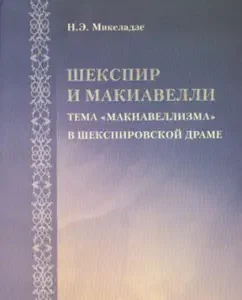The book examines the problem of perception and image in Shakespeare’s drama of the ideological complex, from the XVI century. known as “Machiavellism.” The author proceeds from the likelihood of a direct acquaintance of W. Shakespeare with the “sovereign” N. Machiavelli. The Elizabethan and French translations of the “Sovereign” of the late XVI century, as well as the essay of I. Zhantius “Anti-Makiavelli” (1576) were involved in the analysis. The author identifies that part of the Shakespearean dramatic canon, in which this issue is allocated a significant place, and comes to the conclusion about the actual creation of the line of the 16th-XVII centuries in England. full-fledged literary and theater “anti-Makiavelli”, which is not inferior in the force of impact of polemic treatises, published at the same time in Europe. The approach clarifies the ideological vector of the Shakespearean theater on the threshold of the new time and allows you to make significant clarifications to the interpretation of Shakespeare’s plays (chronicles of the first and second tetralios, King John, Windsor mockery, Gamlet, Measure for Meru, Ostello, King Lear, McBet).
Address book …
Publisher
VK, 2005







Reviews
There are no reviews yet.